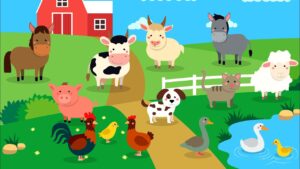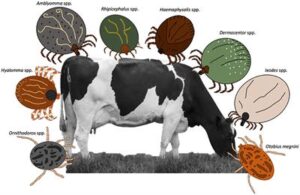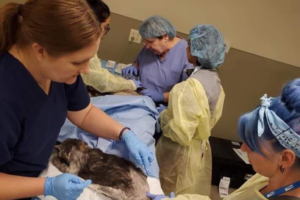Back to: Animal Husbandry SS 3
Welcome to today’s class!!
We are thrilled to have you in our class!!
In today’s Animal Husbandry’s class, we will be focusing on Revision.
Revision
As students, if there is a moment that you can look forward to to refresh your memory before writing your exams, is the Revision period. And because Revision is a very important step in fostering adequate preparations for examinations, it is important to enjoy it.
Let’s take a look at some of the topics we’ve covered so far.
Animal Improvement
Have you ever owned a pet? How did you care for your pet? Like humans, animals are also cared for, whether they are reared as pet or food.

Animal improvement talks about the ways of developing and breeding only those animals that show the greatest positivity under consideration such as good feed conversion, growth rate, disease resistance and egg size. It also involves the upgrading of existing (local) breeds as a result of some desirable characteristics which they
possess.
Animal Improvement is important for the following reasons:
- To produce animals that can give high yield or products in the form of meat, egg and milk.
- To produce animals that can provide high quality products such as low back-fat thickness, yolk size and shell hardness.
- To produce animals with high feed
conversion efficiency. - To produce animals with a high growth rate.
- To produce animals with early maturity.
- To produce animals which can adapt to climatic (environmental) conditions.
- To produce animals that are resistant to parasites and diseases.
Livestock Parasites and Pests
Parasites are living things that depend on other living things for food.
They live within or on the body of the organism they depend on, or inside the body of the organism.
Interestingly, an organism which the parasite depends on is referred to as the HOST.
There are two types of parasites: External Parasites and Internal Parasites.
Let’s examine the first one:
External Parasites
External parasites are found outside the body of the animal attached to the skin of the animal.

These parasites feed on the blood of their host by sucking their blood.
Examples of external parasites are ticks, fleas, mites and tsetse fly.
What effect do external parasites have on livestock?
- They suck blood from the animal and make them suffer from anaemia.
- They transmit diseases to the animals.
- They damage the skin or hide making them to have low value and so the farmers lose on profit.
- They cause irritation on the animal and make them irritable and uncomfortable.
- The animals may eventually die from the diseases transmitted.
Let’s proceed with the second one
Internal Parasites

Internal parasites live inside the body of the host.
Examples of internal parasites are liver flukes, tapeworm, roundworms and hookworms.
How do internal parasites affect livestock?
- They can cause damage to the body organs such as the liver and the digestive system.
- They can cause blockage to the body organs for example the intestine which may be fatal, like in the case of tapeworms.
- They produce poisonous products inside the animal’s body that make the animal sick
- They eat the food meant for the animal making it weak.
How can internal parasites in livestock be controlled?
- Deworming livestock kills the parasites.
- Deworming is done by giving livestock liquid drugs (drenching) tablets by mouth (dosing).
- Draining swampy areas to reduce snail habitats.
- Rotational grazing denies internal parasites a host.
- Burning pasture like grass kills the parasite’s eggs deposited on them.
In summary, while external parasites are found outside the body of the animal attached to the skin of the animal, Internal parasites live inside the body of the host.
Farm Animal: A Visit To A Vet To Observe Sick Animals
An attendant is seen explaining some of veterinarians we can find in clinics. Here are some of them:

- Veterinary Specialists
Just like doctors who work with people, veterinary physicians can pursue countless specialties. Some career options are anesthesiology, dentistry, pathology, and surgery.
Veterinarians can also choose to specialize in a particular species or group of animals, like cats, dogs, poultry, or wildlife.
Vet Specialists act as consultants for other vets when a particular type of equipment or expertise is required. Because each role calls for different skill sets, daily duties will vary substantially across specialties.
- Food-animal Veterinarians
Food animal veterinarians work primarily with animals raised for human consumption to ensure products are safe to eat. Many are large animal vets, but that’s not always the case. They may work on ranches and farms, and they often spend a fair amount of time traveling.
- Modern Vets
When presented with ill animals, modern vets have access to a wide range of drugs to treat chronic diseases such as heart failure, diabetes, osteoarthritis and renal disease, improving the quality and length of life of sick animals by many years. Many drugs that were previously only available for people are now routinely used to treat animals, including powerful painkillers, such as non-steroidal anti-inflammatory drugs and opioids, and antibiotics.
In more extreme cases, an animal’s life may be saved when it is given an organ from another animal. In renal transplantation, a healthy kidney is surgically removed from a healthy donor animal, and implanted into a recipient animal with renal failure. The donor is often a stray animal from a rehoming shelter, and the usual policy is that the owner of the recipient animal must then adopt and care for the donor for the rest of its life, although this is difficult to enforce.
From today’s visit to the Vet, we have learned who Food-animal Veterinarians, Veterinary Specialists and Modern Vets are, and the role they play in treating sick animals.
Evaluation
What is Animal Improvement?
Reading Assignment
Explain any five things found in a poultry farm
Weekend Assignment
Identify five livestock pests and diseases
We hope you enjoyed today’s class. See you in the next class.
Let us know your thoughts and questions in the comment section, and we will attend to them as fast as we can.rev
